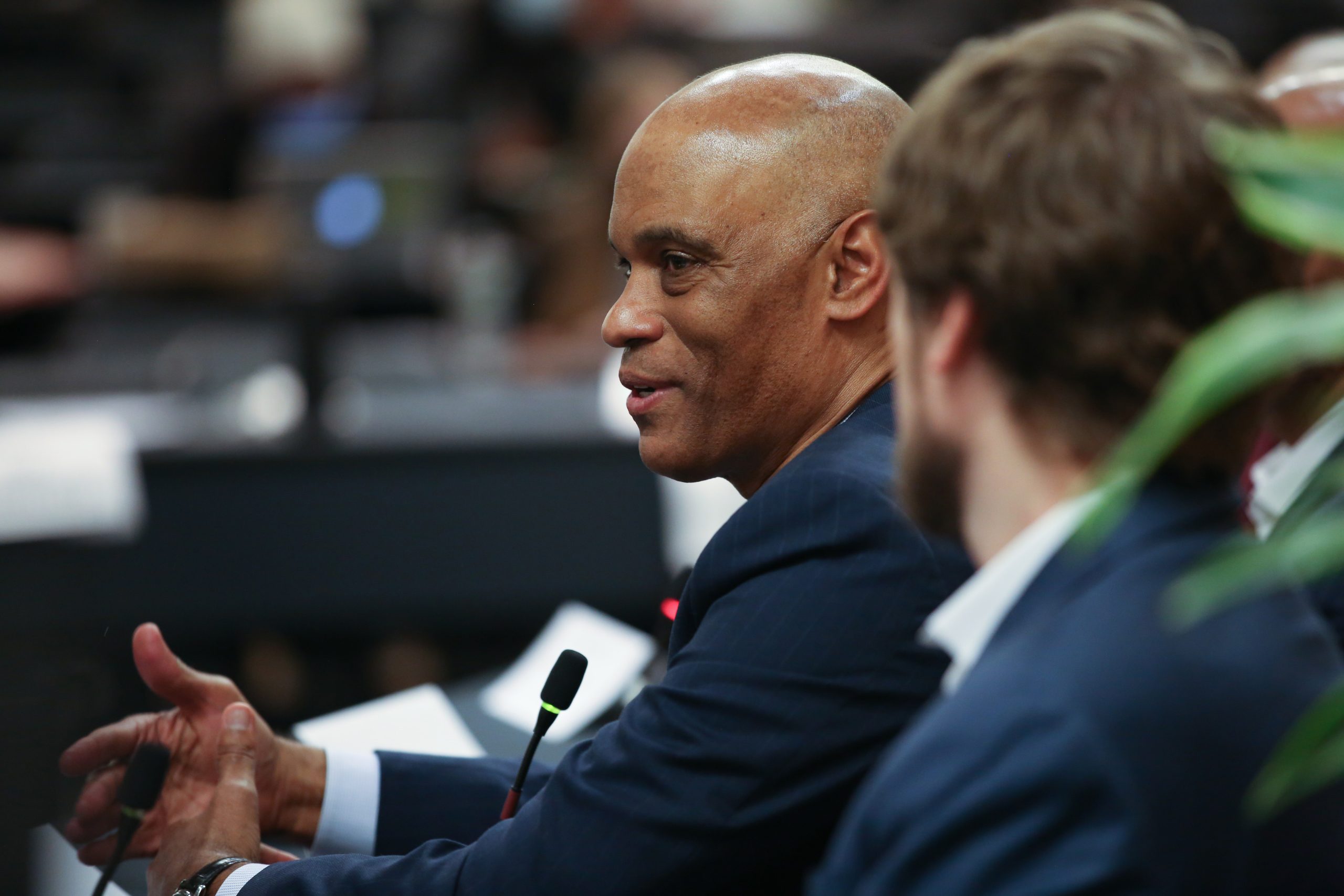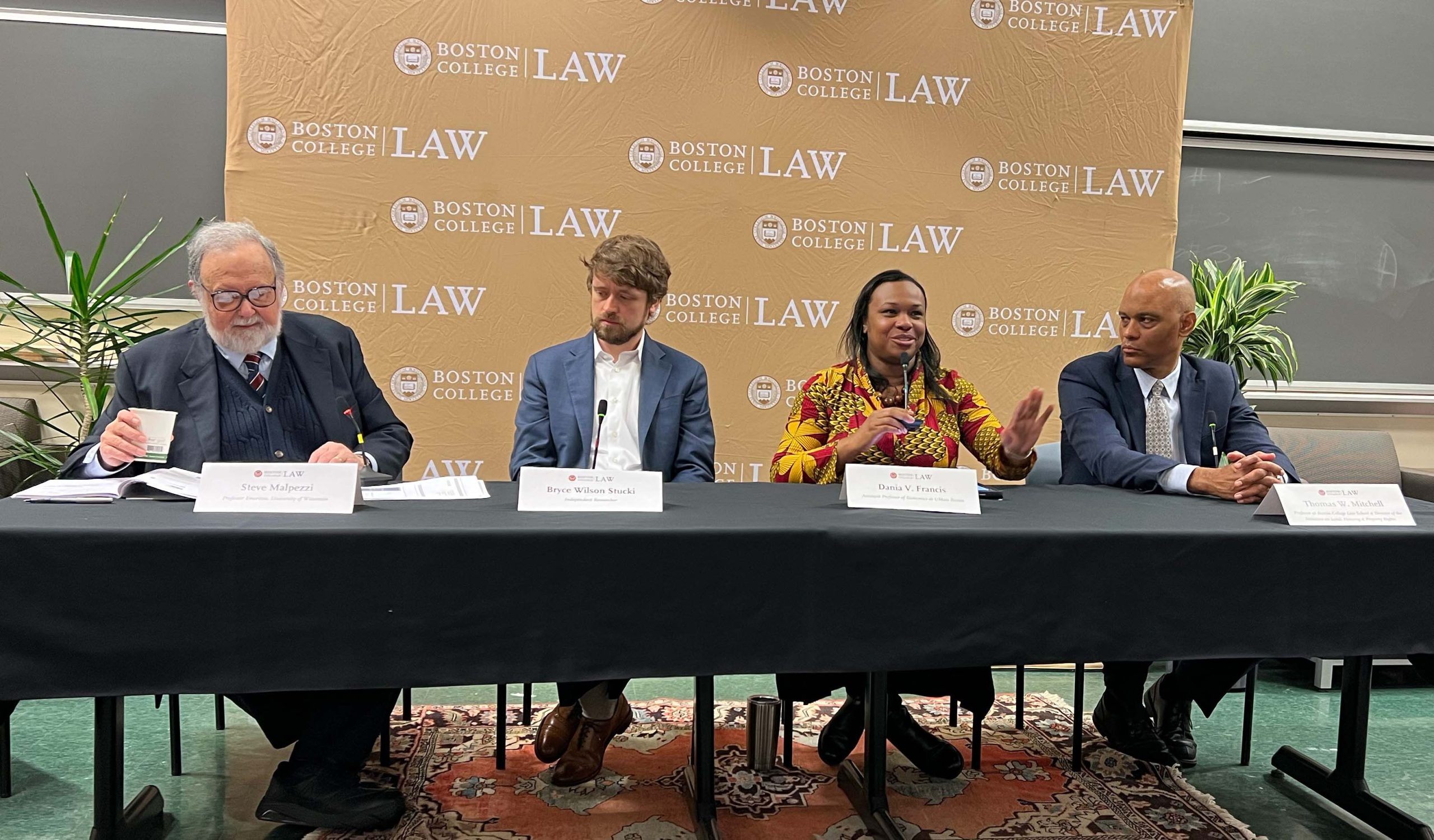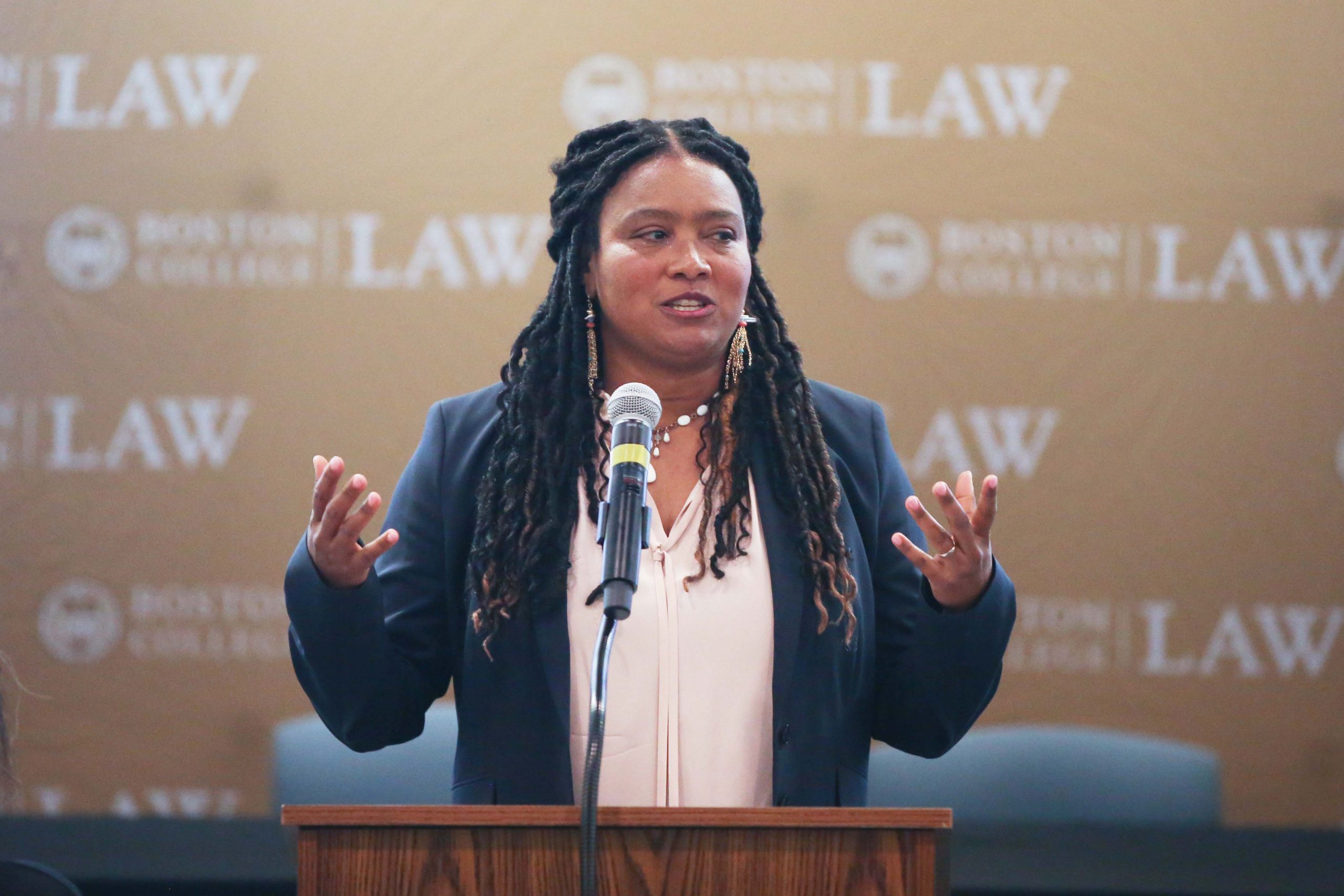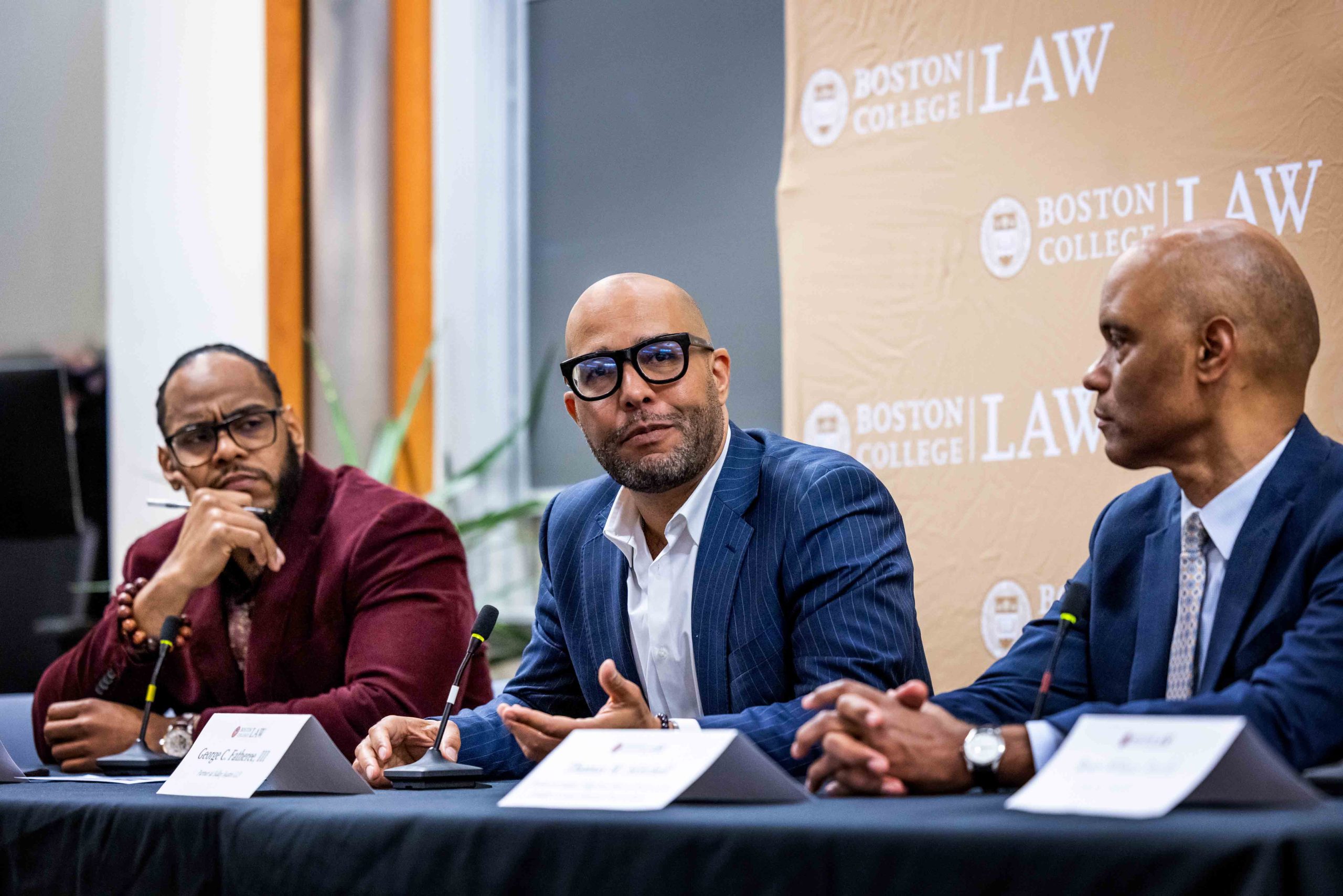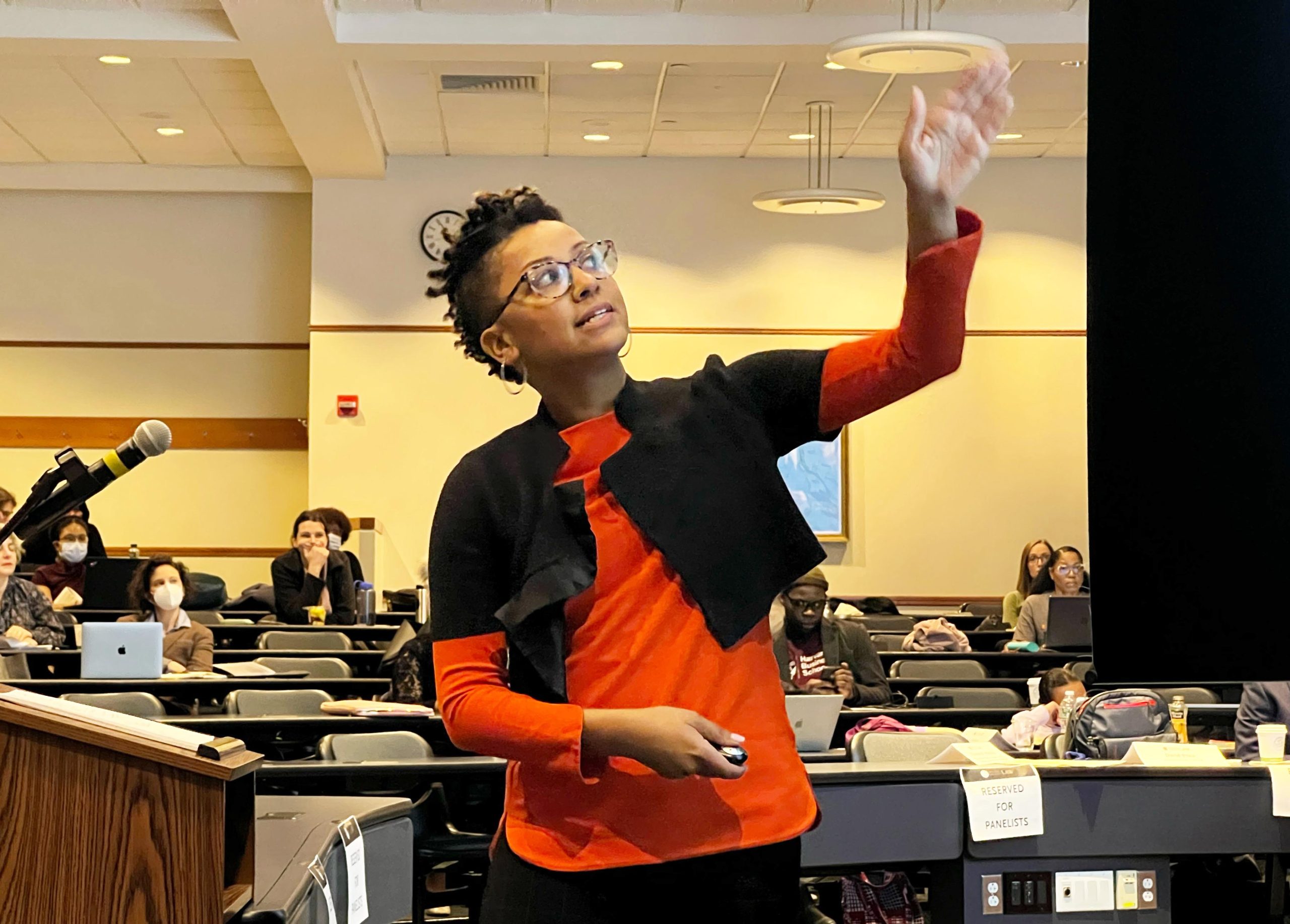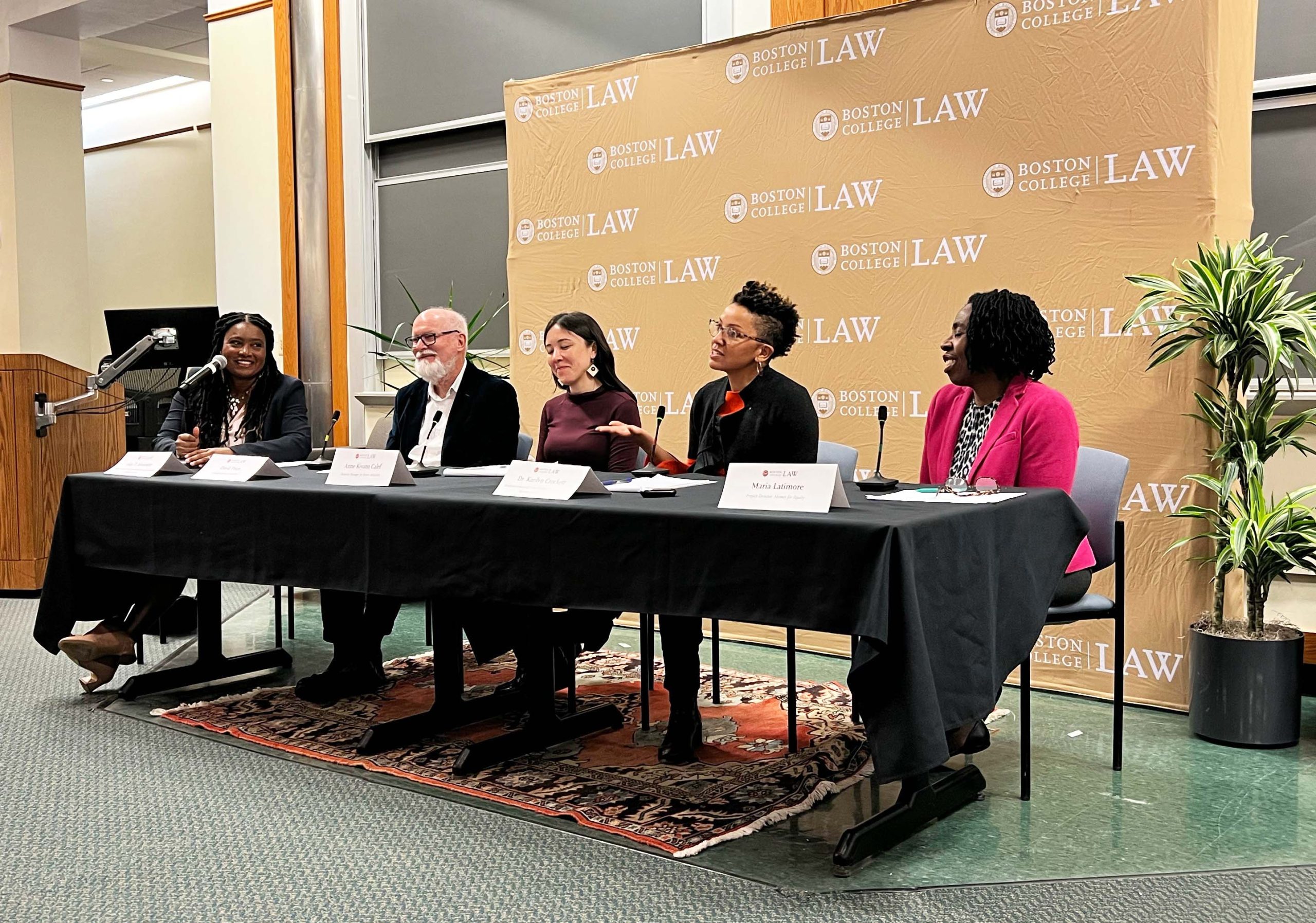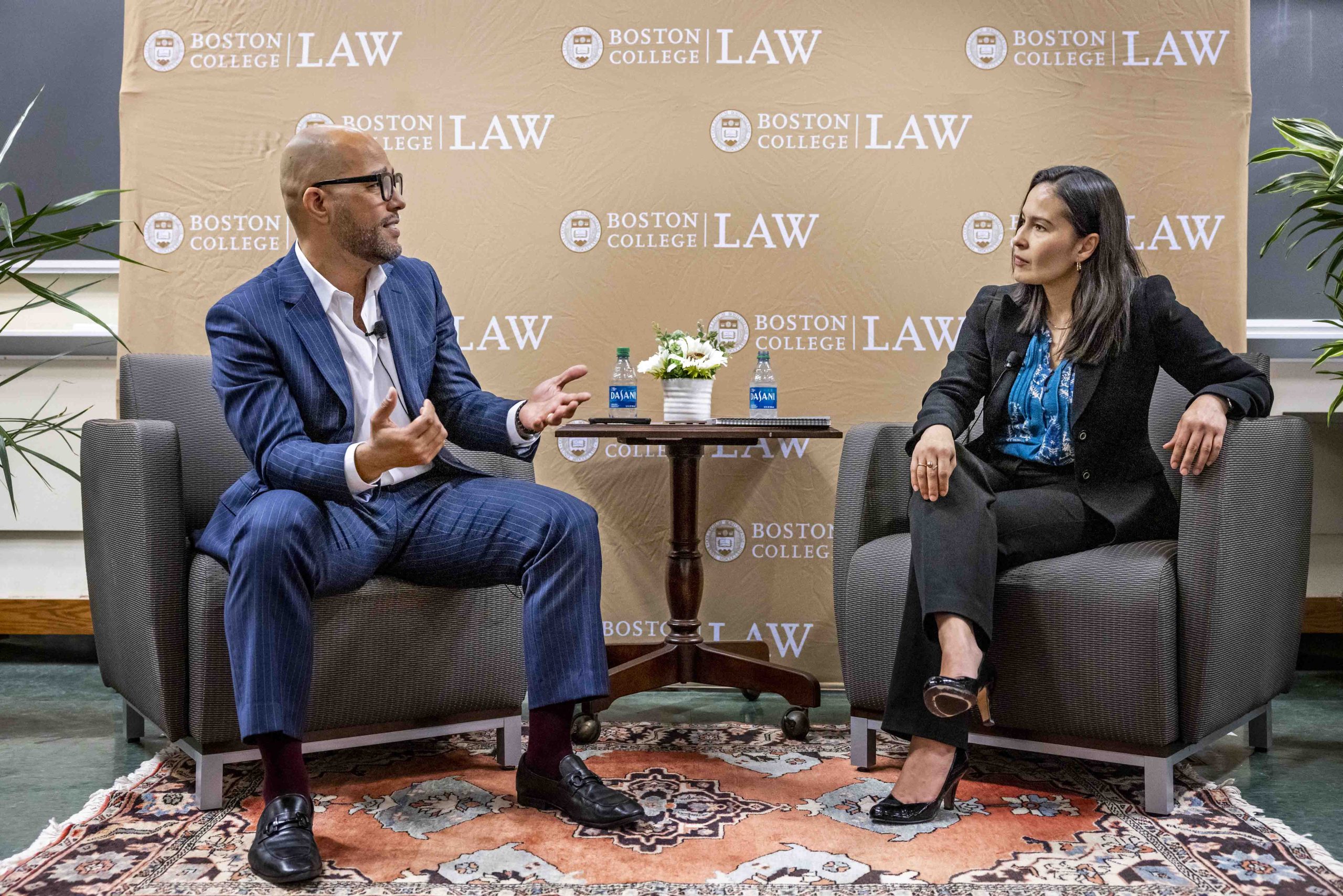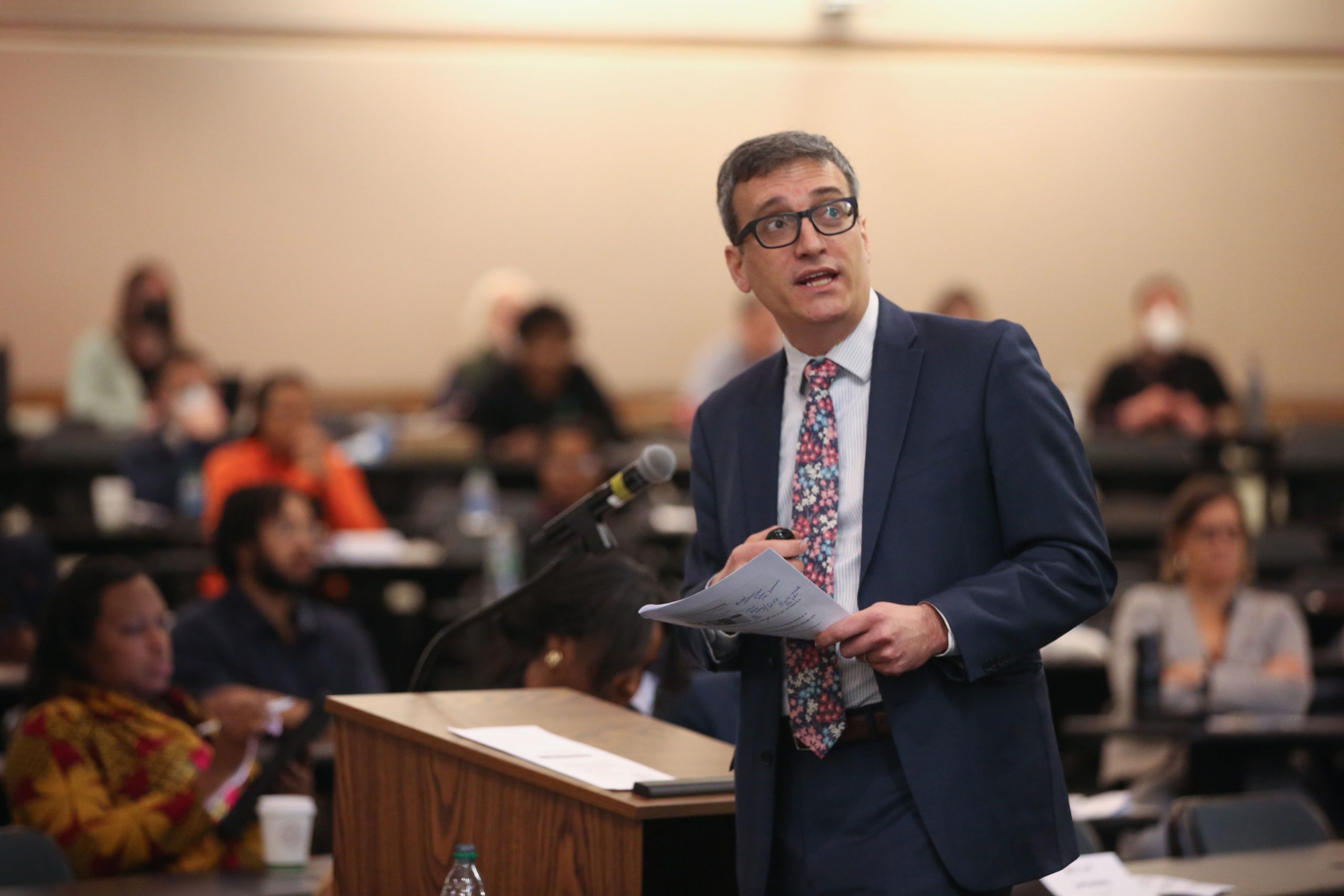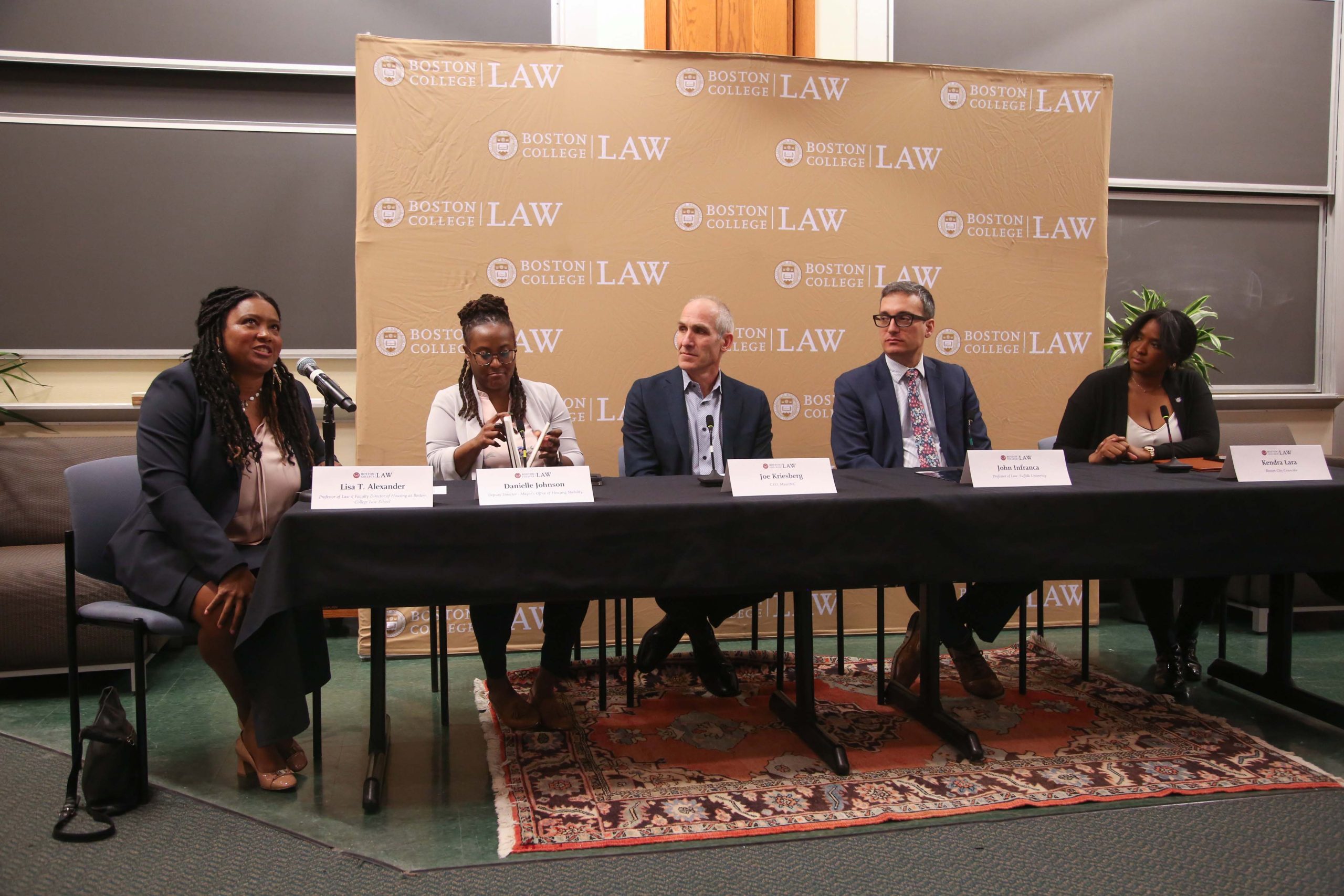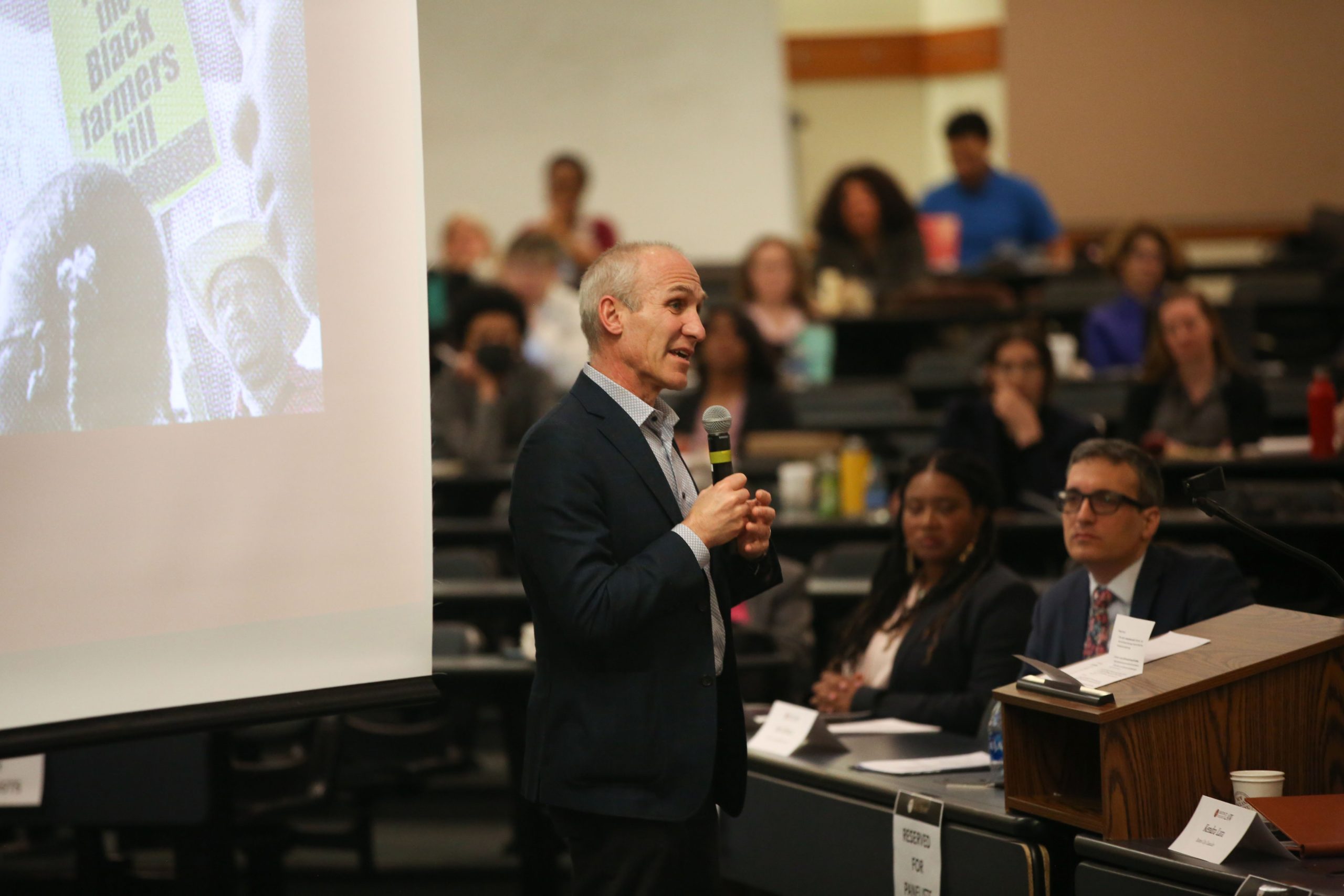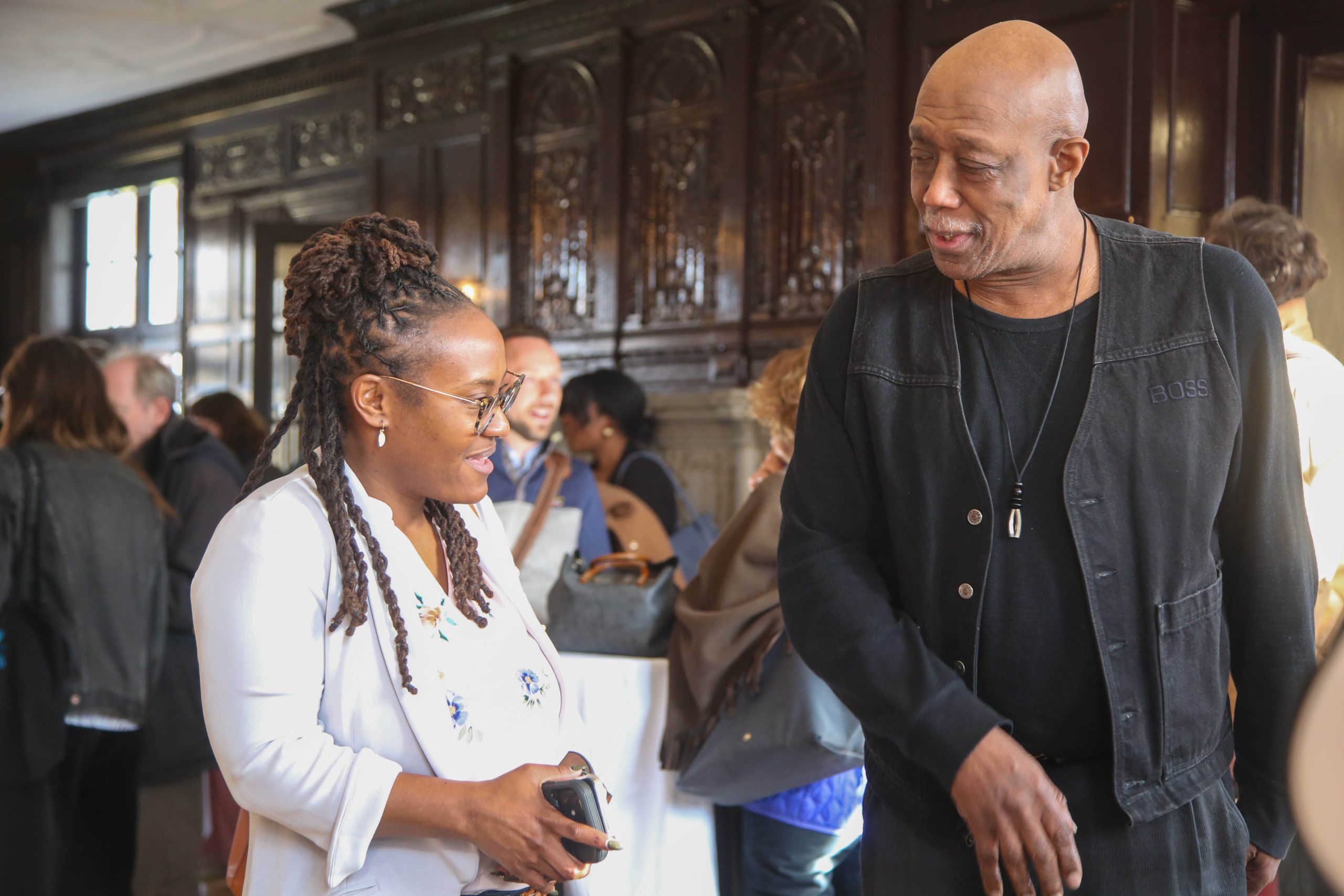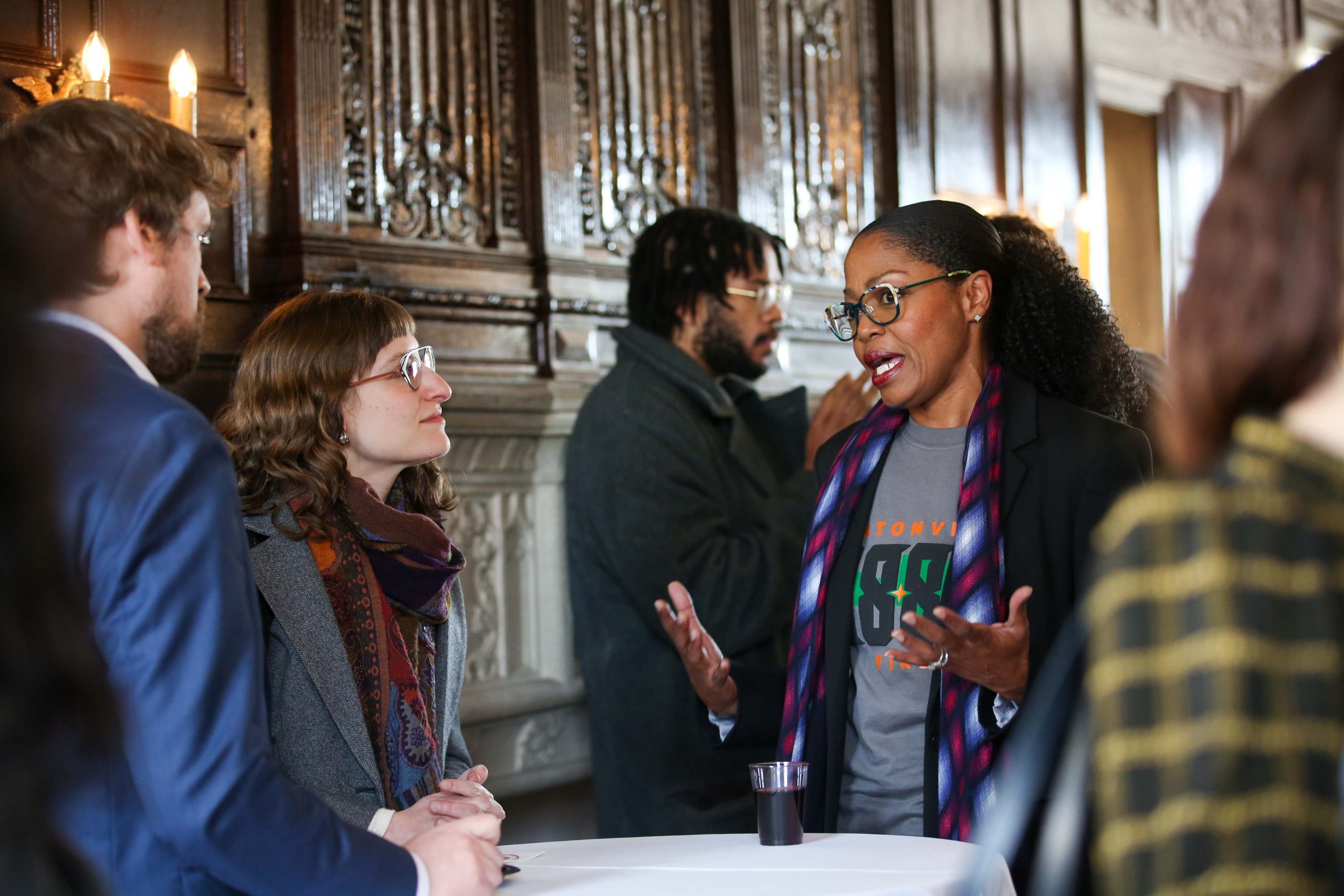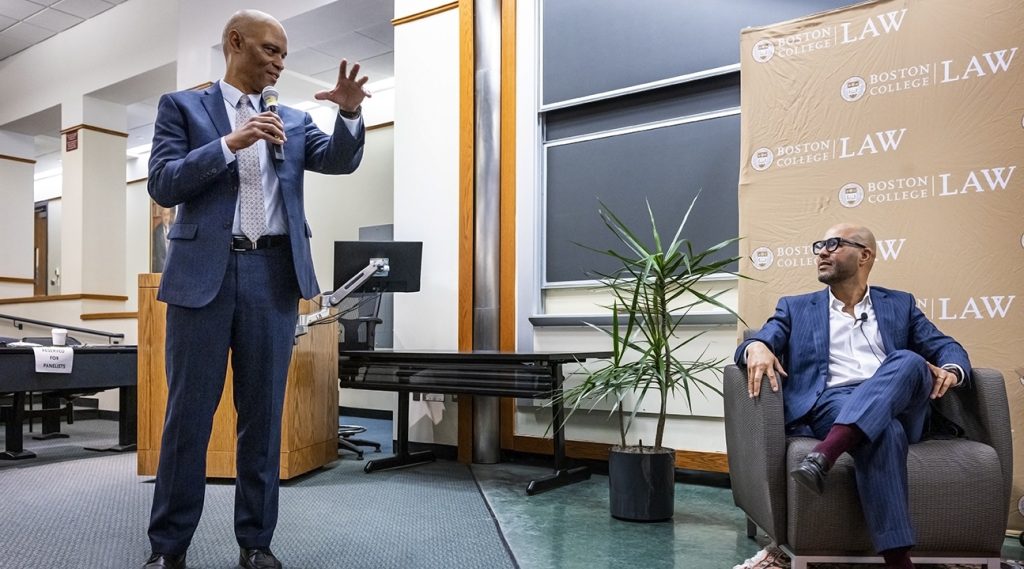On March 23 and 24, Boston College Law School partnered with Harvard Law School to lead a two-day conference focusing on issues of housing, Black land loss, and reparations. The event, spearheaded by Robert F. Drinan, SJ, Endowed Chair and Professor Thomas Mitchell, drew hundreds to campus and capped off a lively Property and Housing Week at BC Law. Topics ranged from the local—one panel focused on housing inequality and unaffordability in Boston—to the national level, as speakers from across the country proposed sweeping strategies to redress the wrongs of the past.
Mitchell was a welcoming presence throughout the conference. Harvard’s Thursday evening kickoff introduced many of the speakers Mitchell had helped to bring together and featured a roundtable discussion and Q&A on Black land loss problems and solutions. Friday, Mitchell introduced the agenda for the day and served on a number of panels.
Among the eminent speakers were Mitchell’s co-authors of “Black Land Loss: 1920-1997.” Their groundbreaking 2022 article not only invigorated the national conversation about land loss and reparations, but it also became foundational in the establishment of BC Law’s new Initiative on Land, Housing, and Property Rights (ILHPR)—which Mitchell directs—and the conference itself.
“We’re not just here to train law students,” Thomas observed. “We’re here to train practitioners and members of the community that were never exposed to the real estate and housing issues that impact and disadvantage people. We want to be proactive sponsors for continuing legal education for all.”
One such lesson at the conference came from Sidley Austin attorney George C. Fatheree III, who recently secured for a Black family the return of the Bruce’s Beach property in California. It was wrongfully taken by the city of Manhattan Beach from his clients’ ancestors nearly a century ago. During his keynote “fireside chat” with BC Law Dean Odette Lienau, he described the personal and professional challenges of orchestrating the return of the land to the descendants in 2022, a precedent-setting transaction valued at $20 million. He shared more of his expertise during the afternoon panel on strategies to redress such Black land loss.
“We’re here to train practitioners and members of the community that were never exposed to the real estate and housing issues that impact and disadvantage people.”
Professor and director of BC Law’s new Initiative on Land, Housing, and Property Rights Thomas Mitchell
Friday’s first panel, “Estimating the Generational Impact of Black Land Loss,” brought Mitchell together with two of his co-authors, Dania Francis, assistant professor of economics at UMass Boston, and Bryce Stucki, an independent journalist/researcher (the fourth and fifth authors are investigative reporter Nathan Rosenberg and the New School’s Professor Darrick Hamilton). The discussion provided a comprehensive overview of the history of Black land ownership, dating back to the colonial period. Moderating was longtime Mitchell colleague Stephen Malpezzi, professor emeritus of the University of Wisconsin’s Real Estate and Urban Land Economics Department.
Stucki said that after the Revolutionary War, a wave of manumissions and the gradual abolition of slavery in the North resulted in the steady accumulation of property by Black property owners; on the eve of the Civil War, nearly 20,000 Black landowners could be found across the Southern US where they faced the steepest climb, and that number grew exponentially during the Reconstruction years. The peak came in 1910, when over 16 million acres of farmland was Black owned.
After that moment, Black land ownership declined drastically, according to Stucki: “There are plenty of reasons for that decline. The white supremacist politics of the South, the imposition of Jim Crow, the revival of the Klan around the time of the Tulsa Massacre. Black communities with a greater share of land ownership were more likely to be targeted by lynchings, and white people would take over their property.” Federal policies and discrimination during the New Deal only served to exacerbate the problem, and Black farmers often felt cajoled into selling their land.
Francis introduced her research estimating the monetary value of Black land loss from 1920 to 1997. Using county-level data on acreage and land values from the US Census of Agriculture, Francis and her team arrived at a staggering figure: Roughly $326 billion dollars in value was lost by Black landowners in less than a century. “That is nearly as much as the current market capitalization of Netflix, Starbucks, and Target combined. And yet, it’s only 2.3 percent of the estimated racial wealth gap of $14 trillion,” Francis calculated.
Roughly $326 billion dollars in value was lost by Black landowners in less than a century. “That is nearly as much as the current market capitalization of Netflix, Starbucks, and Target combined.”
“Black Land Loss: 1920-1997” co-author Dania Francis
Even those astronomical numbers fail to capture the scope of the problem, because tangential benefits to land ownership—access to quality education, control over labor, capital to invest in businesses—are the main pathways to social mobility.
A variety of similar themes were explored throughout the day. BC Law Professor Lisa Alexander, ILHPR’s faculty director of housing programs, moderated two panels featuring a who’s who among the area’s governmental and academic brain trust on housing.
The first panel, on the historical development of contemporary housing inequality and unaffordability in Boston, brought together Karilyn Crockett, assistant professor in urban policy at MIT; Anne Kiyono Calef, producer of data-driven and equity-focused research for such groups as Boston Indicators; Maria Latimore, project director for Homes for Equity; and David Price ’91, associate director of ILHPR and former community development leader.
The second panel was on housing affordability solutions. It featured Professor Alexander, Suffolk law professor John Infranca, MassINC CEO Joe Kriesberg, Boston housing stability deputy director Danielle Johnson, and Boston city councilor Kendra Lara.
The scope of this first-of-its kind conference offered the audience many take-aways, not least of them its humanitarian message about the non-economic harms of Black land loss. As Mitchell put it, “A sense of a family’s history, the cultural importance of land ownership… we’ve seen the wholesale erasure of heritage. You can imagine an alternate history where land ownership remained at that initial level, where we could have had a much more robust Black professional and middle class today.”
Video from the event is available here.
